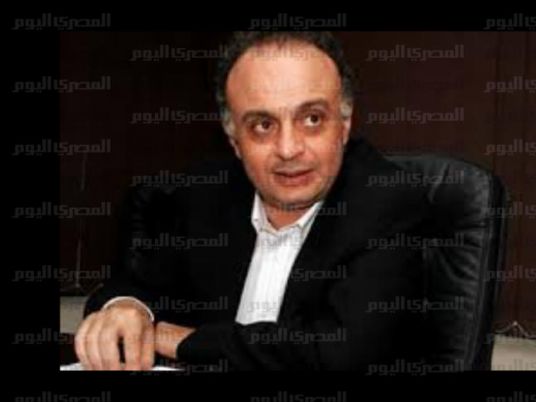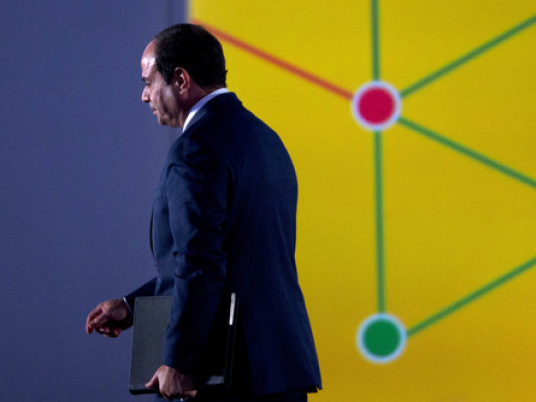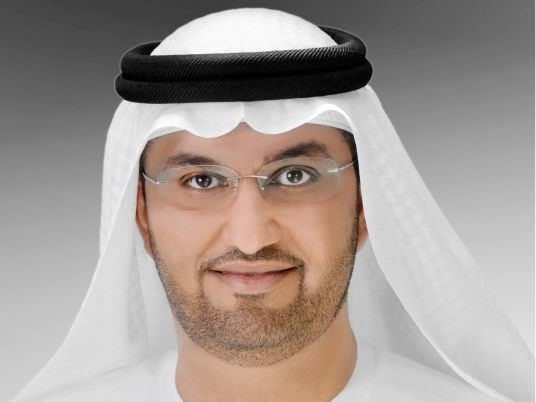
Sherif Sami, Chairman of the Egyptian Financial Supervisory Authority (EFSA), said that the Sharm el-Sheikh economic summit is a “display window” and a signal that Egypt is back on it's feet again, but stressed that it is not the end of the road.
In an interview with Al-Masry Al-Youm, Sami indicated that the EFSA is meeting with investors from the Gulf and with the head of the Egyptian Stock Exchange. "The funding constitutes the lifeblood of development projects," he added.
Q: What is your view of the Economic Summit and how does the EFSA participate in it?
A: First of all, it was the government and not the EFSA that organized the summit. The EFSA is an independent supervisory body by virtue of the Constitution, and its role is clearly defined. We see the summit merely as an important opportunity to show what is available in Egypt and to promote investment. It is a display window for the country, and an official announcement that it is back on it's feet. However, the summit is not the end of the road – we must continue to hold similar events and activities both domestically and abroad.
On Sunday, I will participate in a session entitled “Financial Markets and Services,” attended by various investors from the Gulf and by the head of the Egyptian Stock Exchange. Our discussion will focus on funding as the lifeblood of many development projects, as well as on the availability of non-banking finances, among other mechanisms. We have licensed a number of microfinance companies to work in Egypt. It is a very important sector, although it does not provide funding for major projects.
We also need to stress that we supervise all kinds of investments. In addition, it is worth mentioning that we have three companies from Kuwait, the UAE and France that are requesting to invest in the insurance sector.
Q: What about the bylaws of the capital gains tax that have not yet been issued?
A: The law itself was issued on 1 May 2014 and has been in effect since then. The bylaws merely serve to explain the details, such as deadlines, formalities, discounts and other technicalities, for instance whether commissions would be charged accorsing to a flat rate or otherwise. However, the basis of the tax has already been determined and calculated.
Still, I do agree that the delay in issuing the bylaws might have a negative impact on the market, especially since the initial legislation specified that they would be issued within six months of its publishing date. Now, more than eight months have passed. Keep in mind, however, that it is the Finance Ministry that issues the bylaws, not the EFSA.
Q: Is the Finance Ministry responsible for the delay?
A: I do not mean the Finance Ministry itself, what I mean is that the bylaws are issued by the respective ministries. For example, those concerning the insurance sector are issued by the Investment Ministry. We must also remember that it is not a law regulating stock market taxes. Instead, it amends several provisions of the Income Tax Law, such as capital gains taxes for companies trading in the stock market or other unlisted ones, as well as regulations regarding profit distributions. Naturally, investment funds are handled separately.
Q: Where do the bylaws stand right now?
A: I do not know, but I hope they will be issued for the benefit of all concerned parties. All the remaining contentious issues should be resolved – it makes no sense to keep studying them for the whole year.
Q: What are the repercussions of the delay on the capital market?
A: Any market, particularly the financial market, is highly influenced by ambiguity, and a sensitive issue like taxes may affect the assessment of an investment fund. Although I do not speak on behalf of the Finance Ministry, I think both the ministry and the Tax Authority are studying the details thoroughly, to ensure that the bylaws are practical.
Q: Are there other countries that apply tax bylaws on capital gains?
A: Of course, most countries in the world have taxes on stock trading and capital gains, either as a single tax or as two separate ones, such as Turkey, Morocco, South Africa, the United States and France. Some countries do not apply it, so as to encourage the stock exchange – this was the case with Egypt’s Stock Exchange, since it kicked off in the early nineties until June 2014.
Q: Why was the law viciously attacked at the beginning?
A: There are two main reasons: firsly, because we have moved from a fully tax-free market to a tax on profit distributions and capital gains. Besides, nobody likes a tax, let alone two taxes. And when there is opposition to change, it becomes an additional burden for the government. The other reason has to do with the belief that the burden of financing the state budget should be borne by all.
Like Egypt, some countries have adopted flat taxes. Our tax on capital market gains is 10 percent, and the tax on profit distributions another 10 percent, which can be reduced to 5 percent in certain cases. Other countries, such as France, do not have a preference for flat tax rates.
Misr for Central Clearing, Depository and Registry, which is a neutral party, tells us exactly the amount of the profit made and how it was distributed. But the tax is not just calculated on the sales and purchases transactions, since the purchase could have been executed over many years. Here, we calculate averages. Also, the law takes into account deferred losses. This way, the tax is not a mere pair of numbers, which is in the best interest of our clients. I expect that we would be asked during the summit to offer a 6 percent discount to foreigners.
Q: Should the bylaws have been issued before the summit?
A: Regardless of the summit, I was hoping the issue would have been resolved quickly, as it is in the best interest of the market.
Q: How about listing companies that are listed in foreign stock exchanges?
A: Last week for the first time, we agreed to list a company that is listed in a foreign stock exchange: Orascom Construction Limited.
Q: How would this benefit the Egyptian Stock Exchange?
A: A company dealing in different capital markets attracts more capital and more investors who do not wish to travel. I personally prefer Egyptian companies, but I cannot close the door to other companies.
Q: What are the conditions for foreign companies?
A: The company's credibility, the administration and the shareholders. It should be approved by the EFSA.
Q: What else?
A: It should offer its stocks to Misr Clearing.
Q: What about the insurance sector?
A: It is an important sector that unfortunately does not get the attention of the media that the money market enjoys. Insurance companies invest in various fields, such as the stock market, real estate, treasury bills, government bonds and investment funds.
Q: Did the compensation those companies paid after the 25 January revolution negatively affect that sector?
A: In my opinion, I believe what affected the sector was the decline in the growth rate and the opportunities that were consequently lost.
Q: What is the insurance sector’s per capita?
A: As little as 160 pounds, which we want to increase. We are working on broadening the coverage with new mechanisms, such as through the Internet and through micro businesses. We were the pioneers of insurance in the region, but we did not modernize this sector.
Q: Did the president intervene to reduce the capital of the Nile Stock Exchange for the sake of small and medium enterprises?
A: The stock market is not a charity. It is a market for trading securities of promising and credible companies. The president did not interfere. He only asked for special attention to small and medium enterprises.
Q: How many companies are listed in the Nile Stock Exchange?
A: We have 30 companies listed, for a total capital of LE1 billion, which is lower than our expectations, given the situation in the past four years. The Nile Stock Exchange should have five times the number of companies listed in the stock market.
We are a one-legged stock exchange because we only have stocks. Other stock exchanges have two legs, namely stocks and bonds. Bonds diversify portfolios and reduce risk. On 31 December 2014, market capitalization stood at LE500 billion. We should have at least LE200 billion in bonds in order to create a balance.
Q: How much are bonds worth in the stock market now?
A: Not more than 5 percent.
Q: How would you evaluate the performance of the stock market?
A: It went up by 27 percent at the end of 2014, but it is the trading that counts. I am not satisfied with the trading since the beginning of 2015. It only amounted to LE300 to LE700 million a day.
After Sisi was elected in 2014, we saw a daily trading in the billions, as was the case in 2009 and 2010. Brokerage firms live on commissions. They are affected when trading is low.
Q: When will daily trading return to what it was like before the 25 January indicators?
A: When the political and economic situations are stabilized.
Q: What about new offers and facilities?
A: There will be new offers and facilities in the first half of 2015, which is more than in the previous four years.
Q: Will Gulf companies play a role?
A: They have always been present. Mind you, what we call foreign trading is in fact Arab.
Q: How about investment funds?
A: I do not know how much they account for, but I do know that we have 91 investment funds of all kinds that manage assets of LE60 billion, of which LE52 billion are in cash funds that do not invest in the stock market. The other funds constitute a small figure for the stock exchange.
Q: How many companies operate under the microfinance law?
A: One company and 55 NGOs. But the market has more than 400 civil society organizations of which 85 percent have a portfolio of less than LE5 million.
Q: Would you tell us about movable collateral and real estate assessment?
A: We have prepared a draft law to this effect. Small enterprises are more impacted by this law. Other countries, such as the UAE and certain countries in Europe, finance micro businesses that do not have sufficient guarantees.
As to real estate assessments, we had 14 experts who worked for 10 months, held a societal dialogue for that purpose and sent an 18-point report to the Central Bank and the Justice Ministry.
Q: What did they say?
They had comments that we will discuss in further meetings. Meanwhile, we rely on real estate assessment experts.
Q: When investment banks promote government projects, does this affect FSA control?
A: Absolutely not.
Q: Are there directives to shelve the Rachid Mohamed Rachid file?
A: Absolutely not. He is suspected of making use of inside information to increase the capital of Hermes in 2003 and 2006. Everybody knows that increasing the capital of a company is in the hands of the Board of Directors and a General Assembly. Then it is published in a newspaper.
Inside information is often used to increase share values, but that was not what happened in his case.



